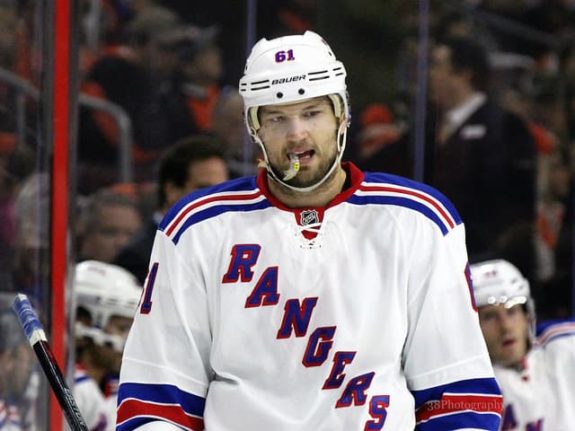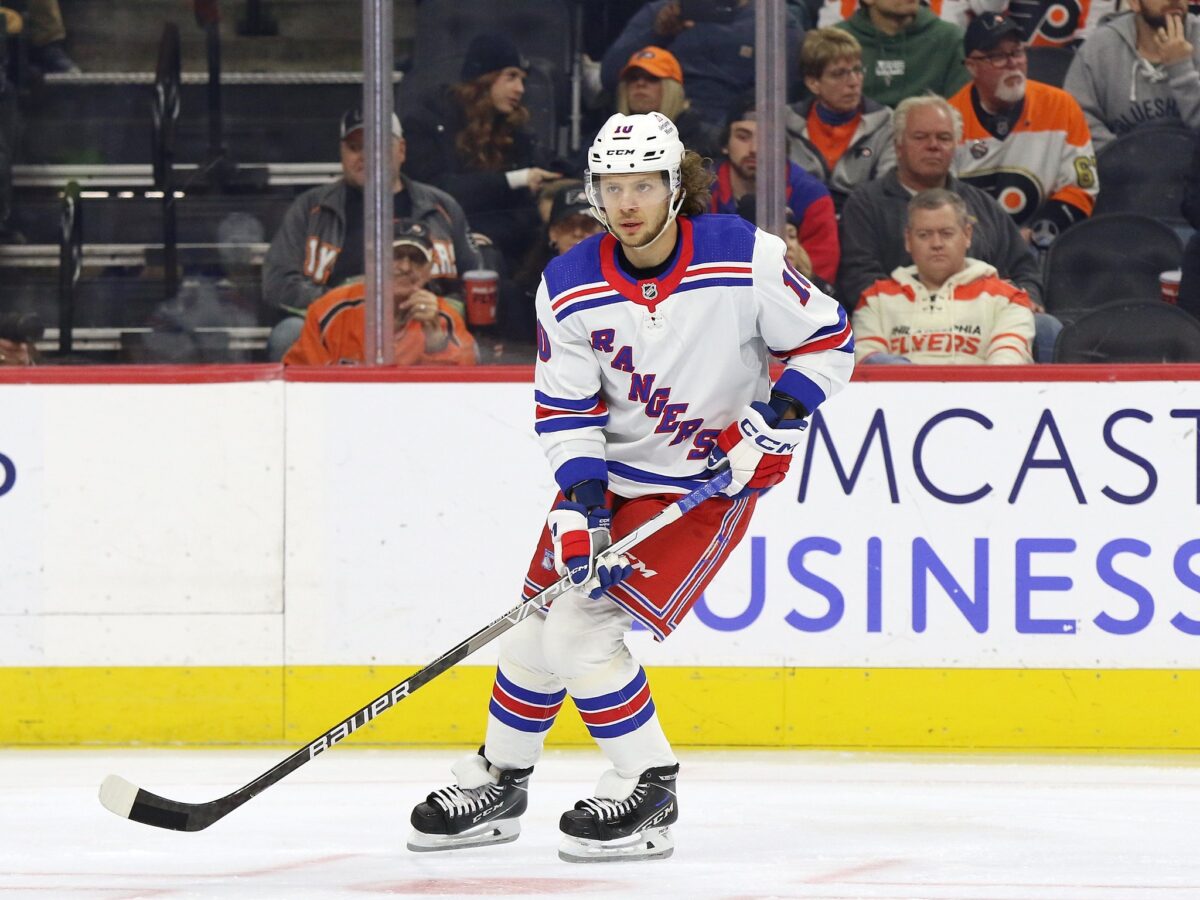The New York Rangers had a strong regular season but it ended with a 4-0 loss in Game 7 to the rival New Jersey Devils. A lot of players underachieved in the series but no one was more disappointing than Artemi Panarin who failed to play up to the lofty expectations that came with the seven-year, $81.5 million contract he signed in 2019.
Panarin has joined Marian Gaborik and Rick Nash as the most recent in a string of star forwards who have not performed well in the playoffs during their time with the Rangers. Here is a look at what went wrong for all three stars.
Marian Gaborik
The Rangers signed then 27-year-old Gaborik to a five-year, $37.5-million deal ahead of the 2009-10 season as the team looked to move from rebuilding to contending. He already had some playoff experience during his time with the Minnesota Wild, with 12 goals and 10 assists in 29 postseason games.

Gaborik scored 114 goals and had 229 points in 255 regular season games with the Rangers but had only six goals and seven assists in 25 playoff games. His excellent speed and shot helped carry the team to the playoffs but he did not play to his full potential in the postseason. During the 2011 Stanley Cup Playoffs, he had one goal and one assist in five games and the Rangers lost to the Washington Capitals in the first round.
The following year, the Rangers finished with the best record in the Eastern Conference and they made a deep run in the playoffs. Gaborik provided a great moment, scoring a clutch goal in triple overtime in a 2-1 Game 3 win over the Capitals in the second round. He provided some offense but had some very quiet games, and finished with just one point in six games against the Devils in the Eastern Conference Final.
After the season, Gaborik needed surgery to repair a torn labrum. The injury explained why his usually elite shot looked average in the playoffs. He never got another playoff opportunity with the Rangers but in 2014 he helped the Los Angeles Kings win the Stanley Cup over his former team. He had two goals and an assist in the five-game series.
Rick Nash
Ahead of the 2012-13 season, the Rangers acquired Nash in a trade with the Blue Jackets. The power forward proved to be a dominant force during the regular season, helping his new team make the playoffs in four consecutive seasons. They needed a goal scorer and he had 145 goals in 375 regular season games during his time in New York. However, he finished with just 14 goals (and 24 assists) in 73 playoff games.

Nash played with physicality and was excellent defensively in the postseason but the Rangers needed him to provide more offense. His shooting percentage was 11.1 in the regular season but just 5.6 in the playoffs. The stat is a bit misleading as he fired a lot of shots on goal from bad angles in the postseason but he also failed to capitalize when he did get high-quality scoring chances.
After a disappointing postseason when the Rangers made it to the Stanley Cup Final in 2014, Nash started pressing. In Game 5 against the Kings, he had a chance to score in overtime and extend the series with what looked like an open net but Jonathan Quick made a save with the shaft of his stick. Alec Martinez went on to score the Cup-winning goal for the Kings in double overtime.
Like Gaborik, Nash dealt with injuries during his stint with the Rangers, missing extended periods of time with lingering symptoms from concussions. Though he did not miss any playoff games because of those symptoms, they could have played a part in his struggles. He ended up retiring when he was just 34 due to concussion-related symptoms.
Related: Rick Nash Belongs in the Hockey Hall of Fame
When the Rangers decided to rebuild during the 2017-18 season, they traded Nash to the Boston Bruins and got a great haul in return. They received Ryan Lindgren, a first-round pick which they then used to trade up and draft K’Andre Miller, and Ryan Spooner (whom they traded for Ryan Strome in 2018-19.)
Artemi Panarin
The Rangers decided to sign Panarin to a seven-year deal while still in the midst of a rebuild and he has dominated in the regular season in each of the first four years of that deal. He has finished with more points than games in all four seasons and had 341 points in 268 games. He is a brilliant playmaker and has dramatically improved the team’s power play.
In 2021-22, Panarin helped lead the Rangers to the postseason for the first time since 2016-17. In their first-round matchup with the Pittsburgh Penguins, he made some ugly giveaways but produced seven points in seven games. He came through with a clutch power-play goal in overtime of Game 7 to send the Blueshirts to the second round. He finished the postseason with six goals and 10 assists in 20 games, playing very well on the power play but struggling to create chances at even strength.
In 2022, Panarin did not play to his potential in the playoffs but he still played a key role in the Rangers’ run to the Eastern Conference Final. However, this postseason he played poorly, finishing with no goals and just two assists in seven games.

Panarin missed the net badly on a breakaway opportunity early in Game 3 and could not convert on a few great scoring chances from the slot. Later in the series he looked indecisive with the puck and made a few sloppy turnovers. The Rangers scored just two goals combined in their four losses to the Devils and they needed their star winger to play better.
For Panarin and the Rangers Moving Forward
While Panarin, Nash, and Gaborik have all underachieved in the postseason with the Rangers, Panarin still has a chance to turn it around. Although he does not have great speed or size, he is a dynamic playmaker with an excellent shot.
The talent is there and with Gerard Gallant out as head coach, the Rangers’ new head coach will need to get the best out of their star winger. The team will never reach its full potential unless Panarin plays to his potential in the playoffs.